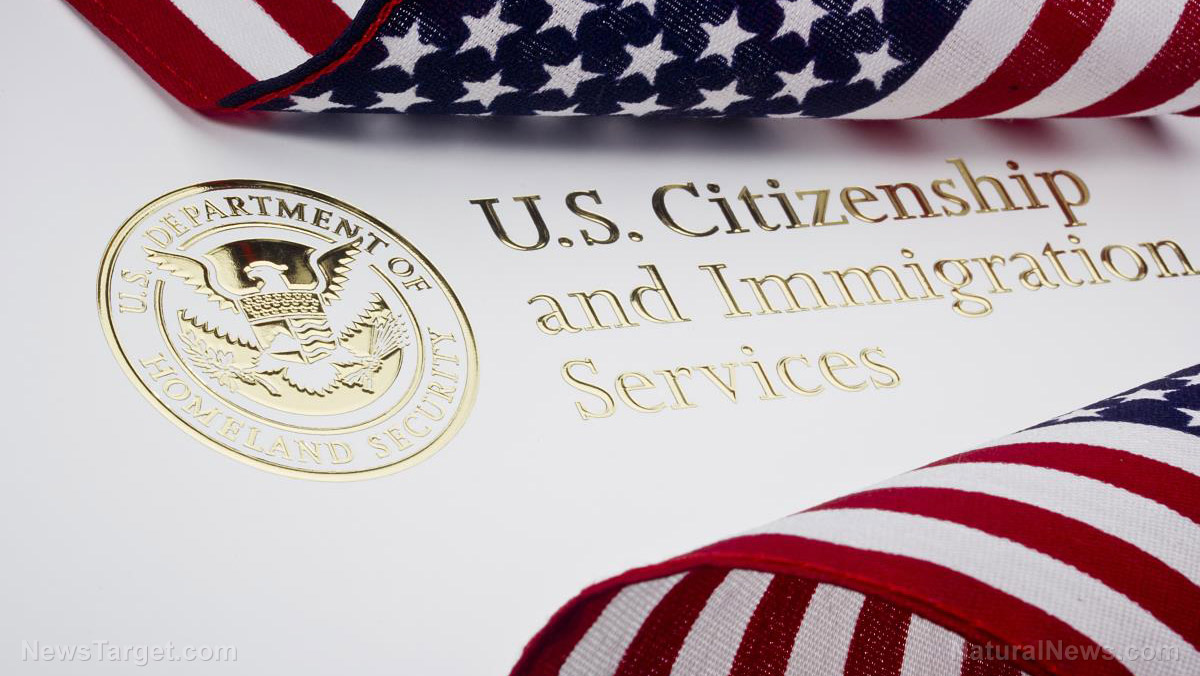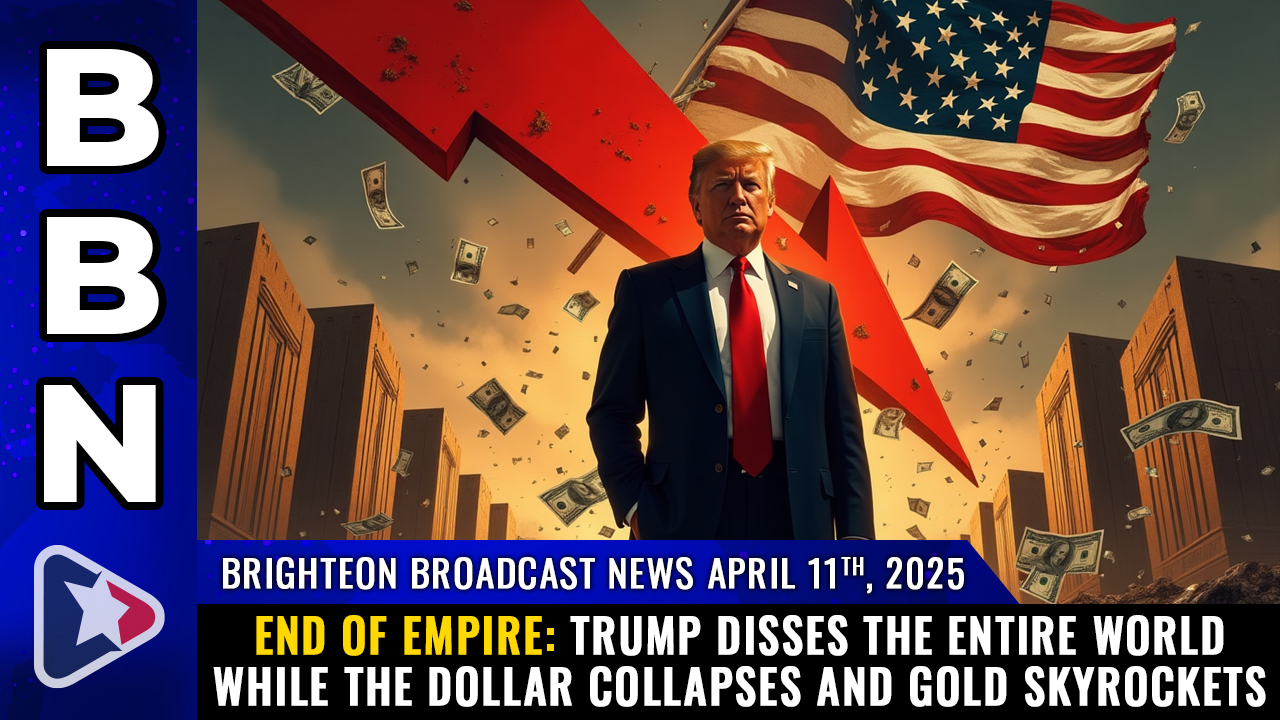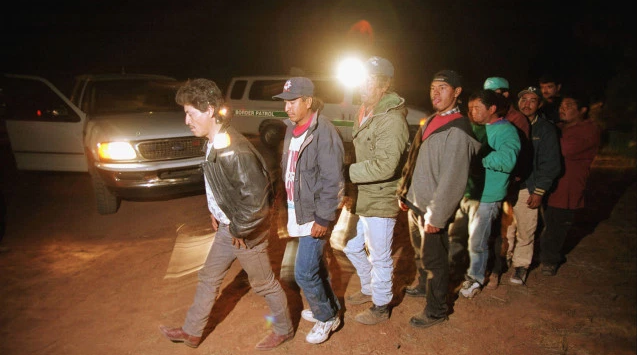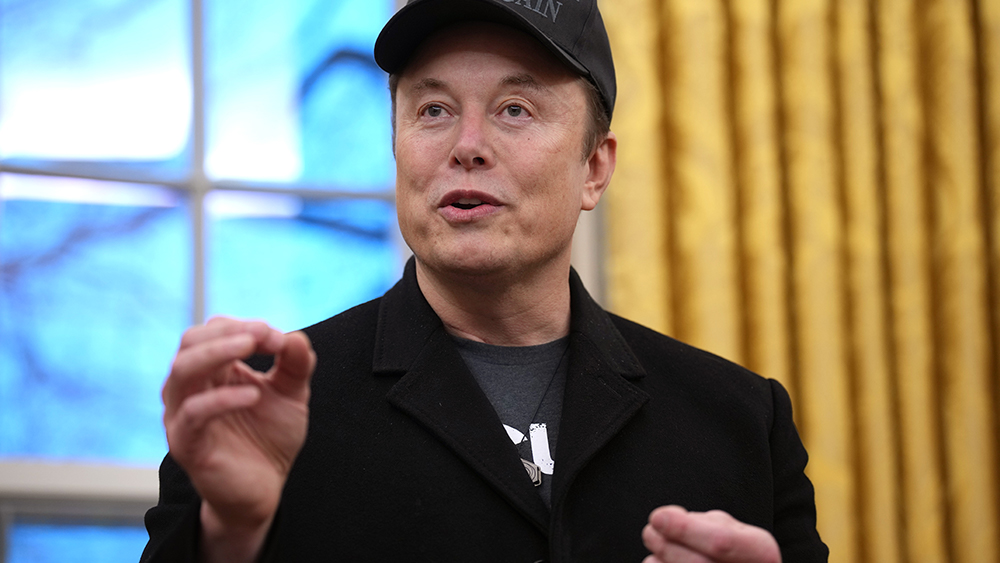USCIS expands social media screening for visa applicants amid anti-Israel campus protests
By ramontomeydw // 2025-04-11
Tweet
Share
Copy

- USCIS has intensified scrutiny of social media activity for visa applicants, targeting ties to groups like Hamas and Hezbollah under a Trump executive order.
- Hundreds of visas, primarily for students, have been canceled – sparking protests and lawsuits over free speech and due process concerns.
- Officials defend the policy, stating the U.S. will not admit individuals supporting terrorism, citing First Amendment limits for antisemitic or violent rhetoric.
- Examples include revoked visas for students like Momodou Taal (Cornell) and Rumeysa Ozturk (Tufts) over controversial social media posts or op-eds on Gaza.
- Critics question whether the policy prioritizes national security or ideological suppression, as courts temporarily block deportations (e.g., Columbia's Mahmoud Khalil).
When free speech clashes with national security
The new policy by USCIS comes amid incidents of students being targeted by the U.S. government for speaking out against Israel's genocide of the Palestinians in the Gaza Strip. A federal court order temporarily halted the deportation of Mahmoud Khalil, a graduate student from Columbia University. In another case, Anglo-Gambian student Momodou Taal found his visa revoked after calling for the "destruction" of the "U.S. empire" on social media. Taal, a former student at Cornell University, challenged the revocation of his visa in court. His appeal was denied, however, and Taal self-deported. Secretary of State Marco Rubio earlier pointed out that under Trump's January EO, the administration has canceled at least 300 student visas. He put forward this claim during a March 27 press conference in Guyana, located in South America. (Related: Rubio: State Department has REVOKED over 300 visas of foreign students.) "If you want to participate in movements that vandalize universities, harass students or take over buildings, we're not going to give you a visa," Rubio argued. "We gave you a visa to study, not to tear up campuses." The secretary of state's answer came in response to a Reuters reporter, who asked Rubio to explain why the Department of State revoked the visa of Turkish national Rumeysa Ozturk. The Tufts University student found her visa canceled after writing an op-ed about the "Gaza war" – something Rubio confirmed during the press conference. Given the fiasco about the USCIS' new policy, one question remains: Where does national security end and ideological suppression begin? For now, the Trump administration remains firm in its stance. Head over to FirstAmendment.news for more similar stories. Watch this Fox News report about protesters supporting Mahmoud Khalil being arrested by law enforcement. This video is from the TREASURE OF THE SUN channel on Brighteon.com.More related stories:
Constitutional CRISIS: Legal resident detained without charge, accused of "antisemitism" for speaking against Israel's actions in Gaza. Trump Administration targets pro-Palestine activist for DEPORTATION, citing "foreign policy threat" in free speech crackdown. Arrest of a Columbia University graduate participating in campus protests against Israel ignites widespread outrage online. Sources include: TheNationalPulse.com TheBlaze.com 1 TheBlaze.com 2 Brighteon.comTweet
Share
Copy
Tagged Under:
national security terrorism fascism First Amendment Social media freedom tyranny Marco Rubio intolerance big government thought police biased Trump administration crackdown speech police culture wars revocation liberty campus protests permanent residency Citizenship and Immigration Services visa applicants student visas
You Might Also Like
Criminal referral requests filed against Fauci and top COVID officials in seven states
By Willow Tohi // Share
U.S.-funded “anti-misinformation” groups persist, raising concerns over censorship and bias
By Willow Tohi // Share
Trump to impose major tariffs on foreign-made pharmaceuticals
By Laura Harris // Share
EU pauses retaliatory tariffs as Trump temporarily halts new duties
By Willow Tohi // Share
Gold prices surge past $3,200 as experts warn of U.S. dollar collapse under Trump policies
By Finn Heartley // Share
Recent News
Gardening tips: 15 Simple tricks to double your garden's yield this season
By zoeysky // Share
Tesla halts U.S.-made Model S and X orders in China amid escalating trade war
By isabelle // Share









